Up to 1974
Commercial activities underwent major changes in the first post-war decade: most of them continued to operate but under different names and with different owners. Some of them also changed sector. Others were closed down or merged with newly established enterprises operating in other sectors. The most developed sectors were the food industry (Izola, Koper), shipbuilding (Piran, Koper), brushmaking (Koper) and saltmaking (Sečovlje, Strunjan).
The majority of industrial plants continued to operate after the war. Conditions were, however, extremely difficult, so production was limited and slow to grow. The owners of industrial plants had their registered offices in Trieste (at that time in Zona A) or in Italy. They were willing to meet their obligations towards their subsidiaries on condition that the latter sold their products in Zone A, something that the Yugoslav Military Government did not permit. As a result, these plants passed under the administration of the Committee for the Management of National Property.
During preparations for the establishment of the Free Territory of Trieste in 1947, the Yugoslav Military Government dismantled much of the factory equipment and machinery in the territory and transported everything to Yugoslavia. The same fate befell mining gear and a large part of the fishing fleet. This led to a decline in production and even greater unemployment.
Another major change came with the nationalisation of commercial organisations and the introduction of self-management in 1951.
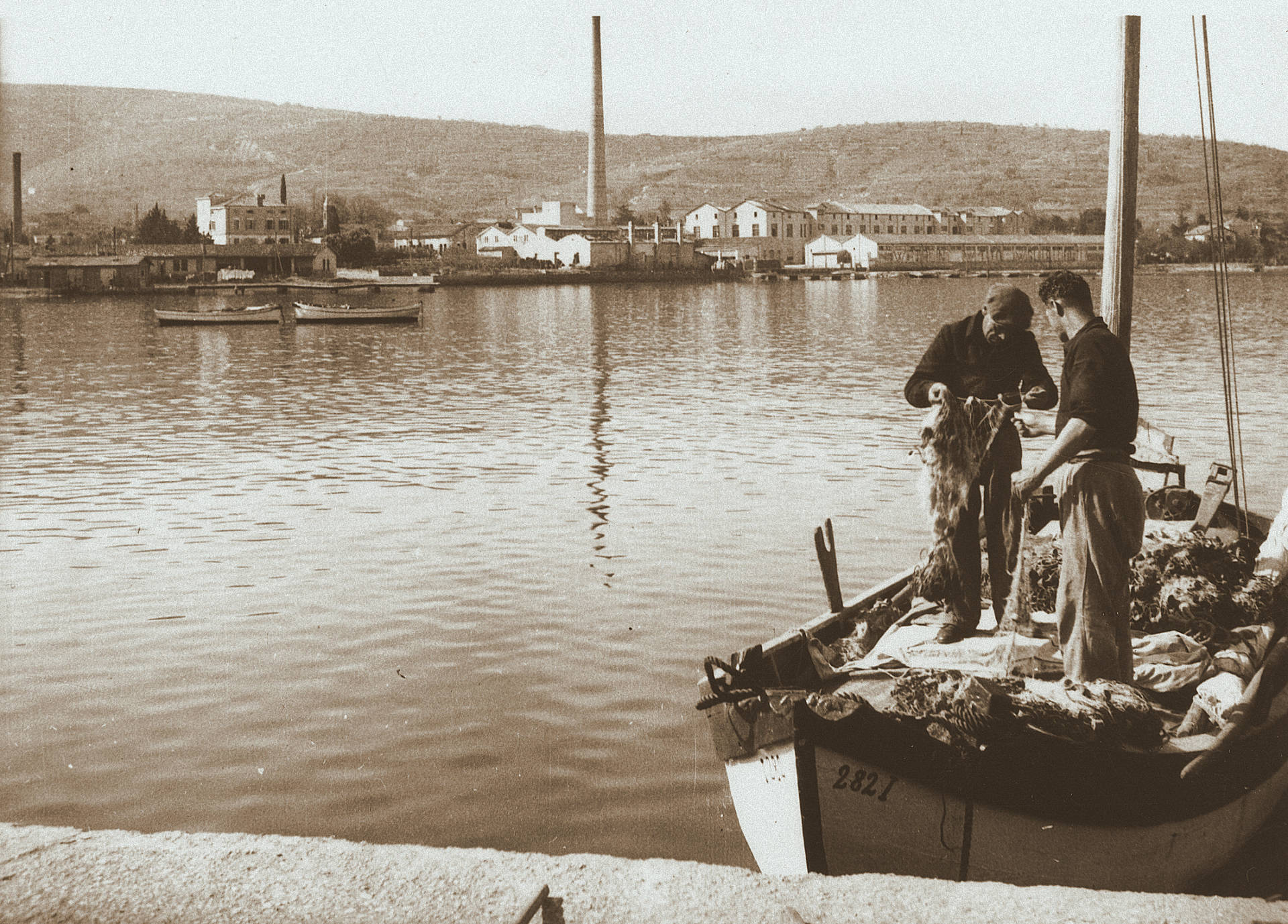 Izola, with the Arrigoni factory in the background. Founded in 1881 by the Austrian company Warhanek. In 1925 it was taken over by Arrigoni of Trieste, which meant that its management offices remained in Trieste after the war. Its activities included the processing of fresh and salted fish and vegetables and the manufacture of tomato sauce, jam and stock cubes.
Izola, with the Arrigoni factory in the background. Founded in 1881 by the Austrian company Warhanek. In 1925 it was taken over by Arrigoni of Trieste, which meant that its management offices remained in Trieste after the war. Its activities included the processing of fresh and salted fish and vegetables and the manufacture of tomato sauce, jam and stock cubes.
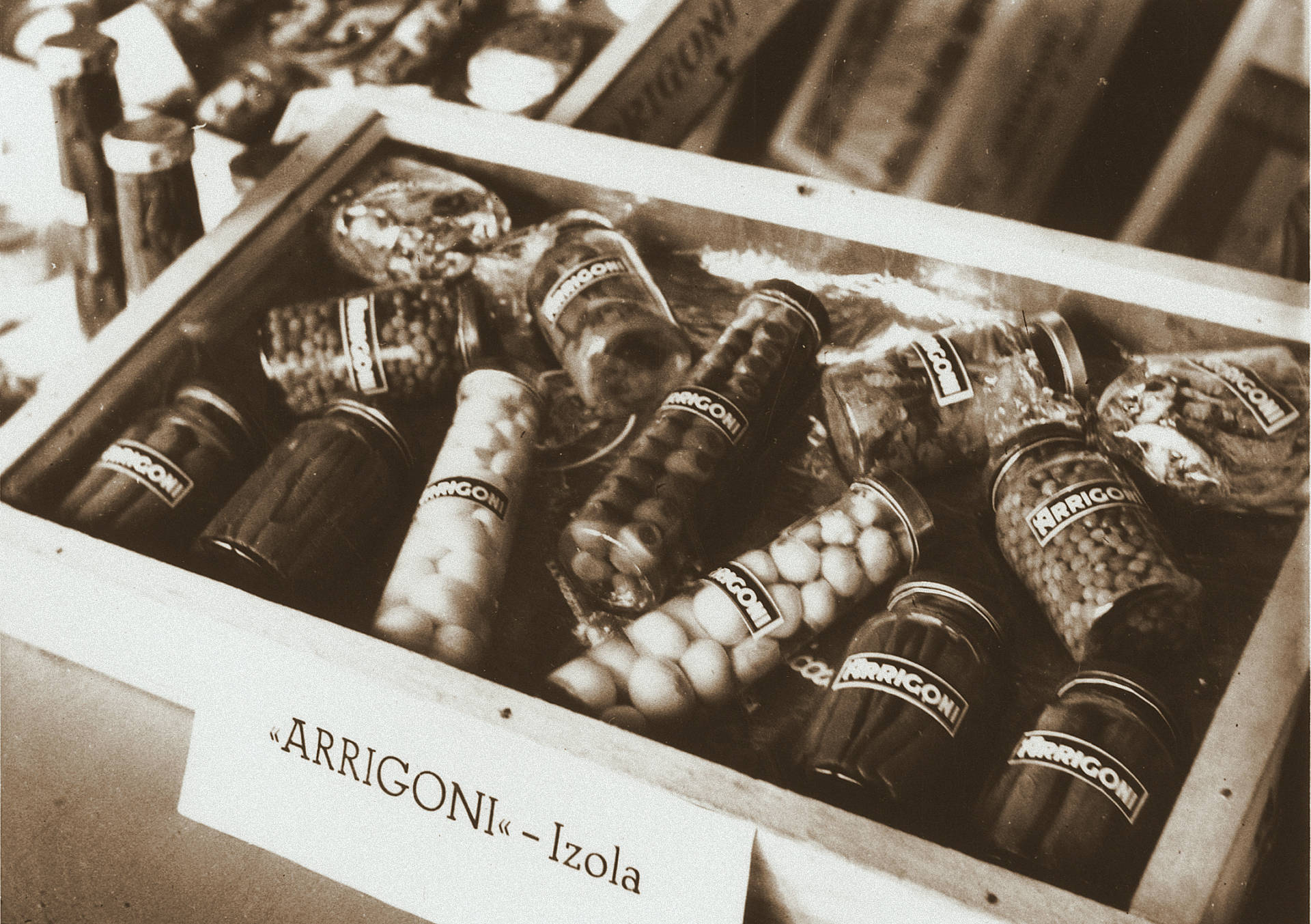 Izola, with the Arrigoni factory in the background. Founded in 1881 by the Austrian company Warhanek. In 1925 it was taken over by Arrigoni of Trieste, which meant that its management offices remained in Trieste after the war. Its activities included the processing of fresh and salted fish and vegetables and the manufacture of tomato sauce, jam and stock cubes.
Izola, with the Arrigoni factory in the background. Founded in 1881 by the Austrian company Warhanek. In 1925 it was taken over by Arrigoni of Trieste, which meant that its management offices remained in Trieste after the war. Its activities included the processing of fresh and salted fish and vegetables and the manufacture of tomato sauce, jam and stock cubes.
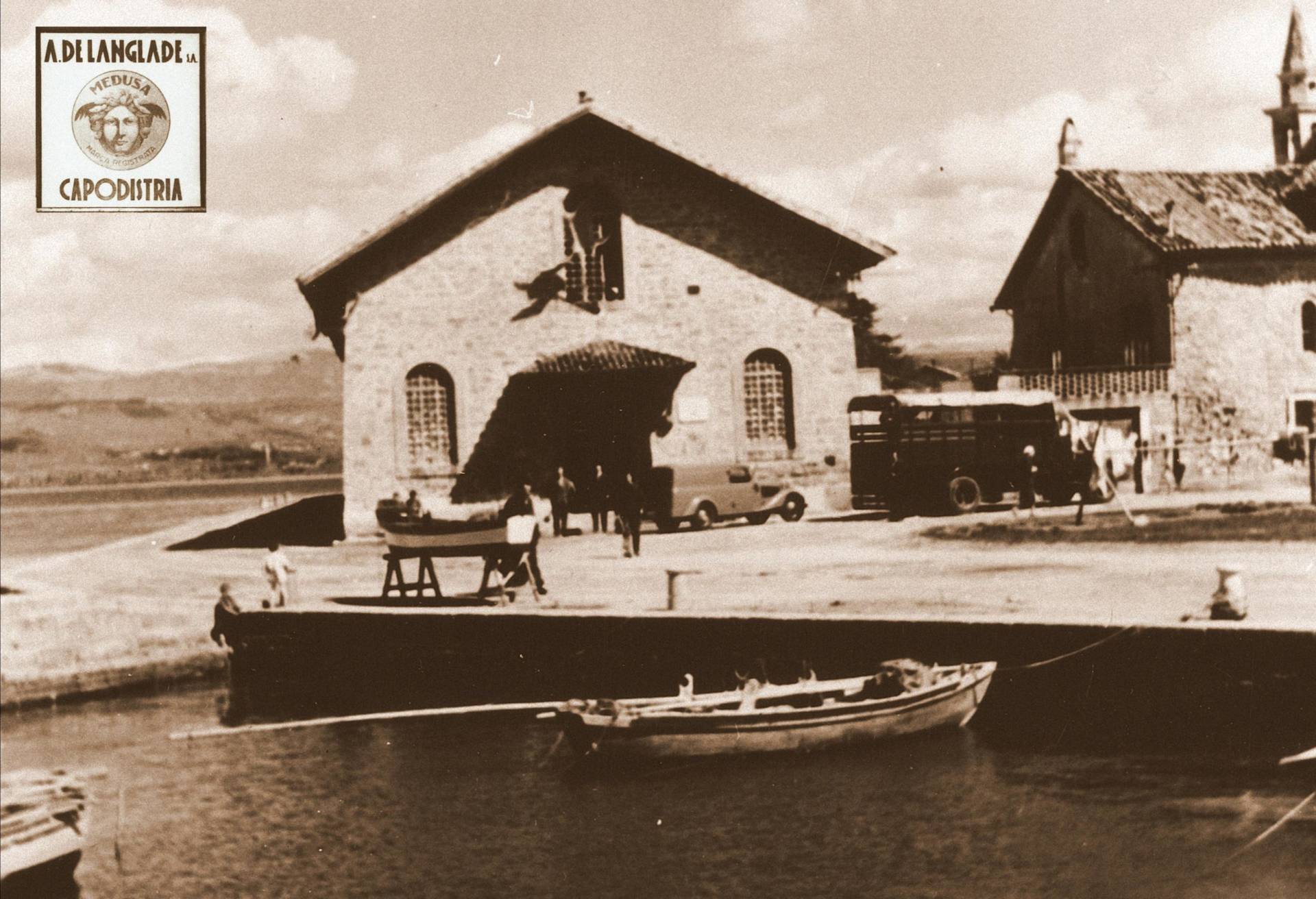 The De Langlade fish factory was founded in 1897 by C. Depangher. In 1925 it was bought by De Langlade of Genoa. Thus the company’s head office was in Genoa, its branch office was in Trieste and the factory itself was in Koper. Renamed Ikra in 1957, it was closed down two years later.
The De Langlade fish factory was founded in 1897 by C. Depangher. In 1925 it was bought by De Langlade of Genoa. Thus the company’s head office was in Genoa, its branch office was in Trieste and the factory itself was in Koper. Renamed Ikra in 1957, it was closed down two years later.
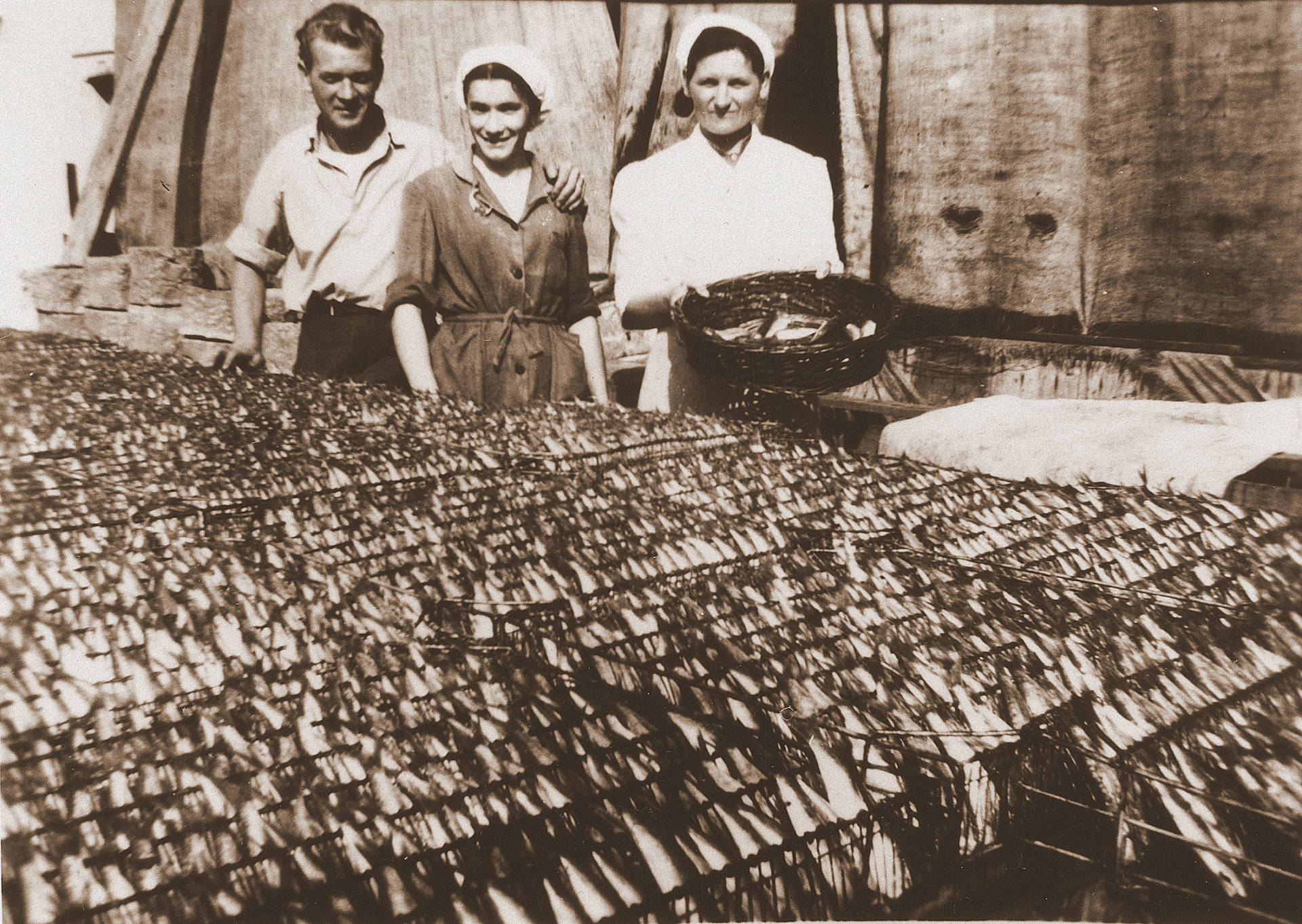 The De Langlade fish factory was founded in 1897 by C. Depangher. In 1925 it was bought by De Langlade of Genoa. Thus the company’s head office was in Genoa, its branch office was in Trieste and the factory itself was in Koper. Renamed Ikra in 1957, it was closed down two years later.
The De Langlade fish factory was founded in 1897 by C. Depangher. In 1925 it was bought by De Langlade of Genoa. Thus the company’s head office was in Genoa, its branch office was in Trieste and the factory itself was in Koper. Renamed Ikra in 1957, it was closed down two years later.
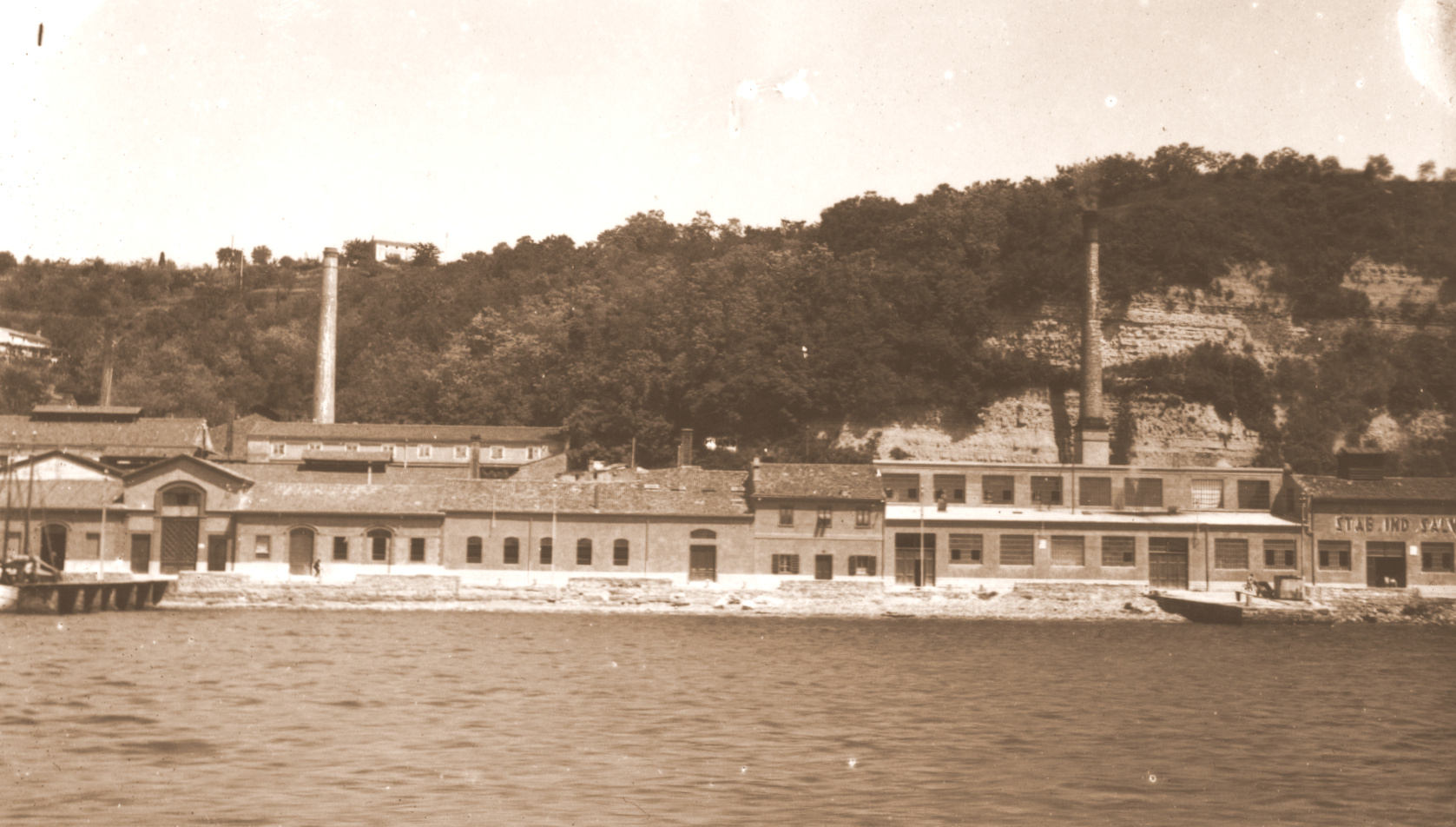 The Salvetti soap factory was founded in 1876 as a glass factory. In 1910 it began manufacturing a new range of products, including soap, washing powder, soda, and so on. After the war it was renamed Ex Salvetti and then closed down in the early 1960s.
The Salvetti soap factory was founded in 1876 as a glass factory. In 1910 it began manufacturing a new range of products, including soap, washing powder, soda, and so on. After the war it was renamed Ex Salvetti and then closed down in the early 1960s.
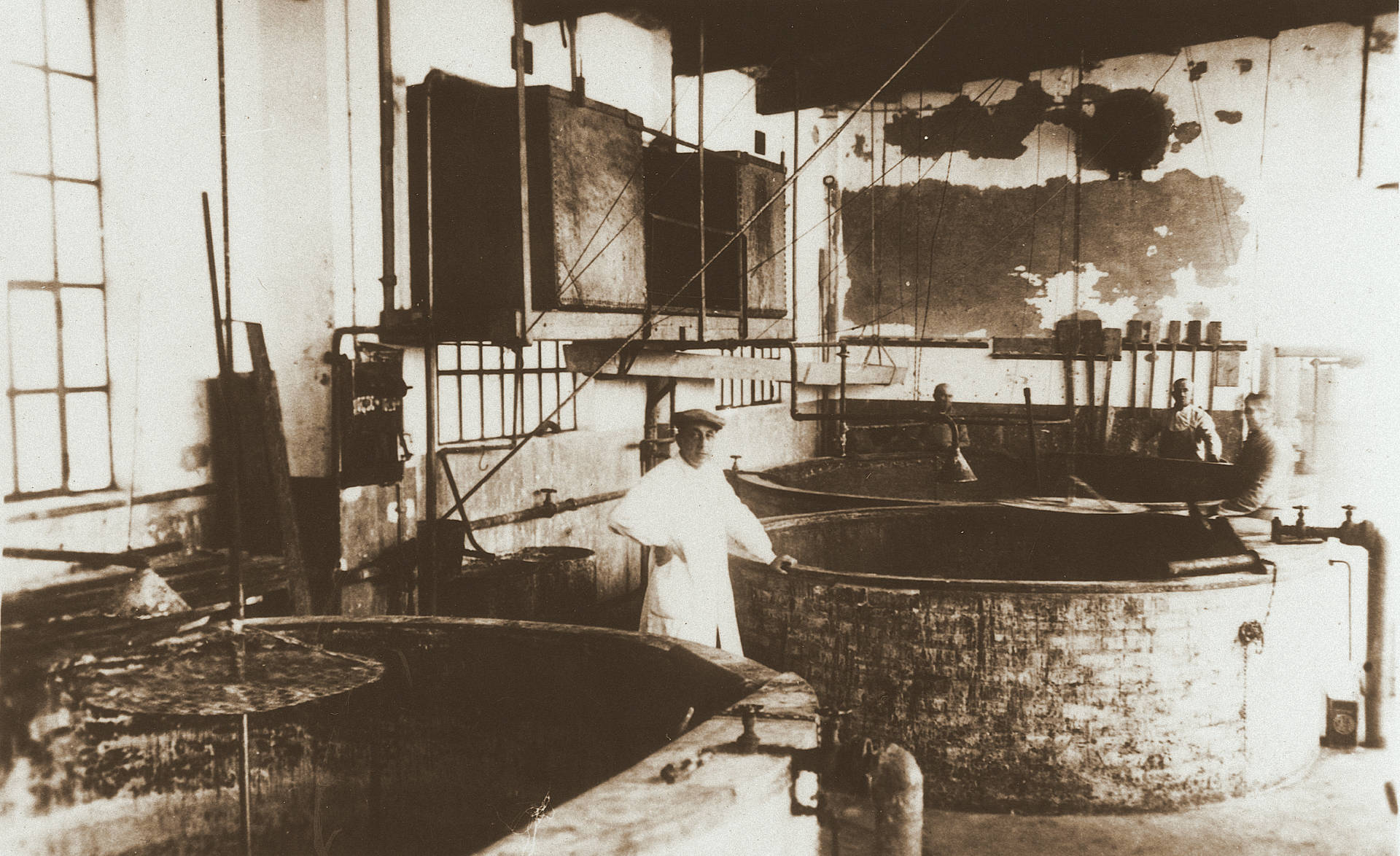 The Salvetti soap factory was founded in 1876 as a glass factory. In 1910 it began manufacturing a new range of products, including soap, washing powder, soda, and so on. After the war it was renamed Ex Salvetti and then closed down in the early 1960s.
The Salvetti soap factory was founded in 1876 as a glass factory. In 1910 it began manufacturing a new range of products, including soap, washing powder, soda, and so on. After the war it was renamed Ex Salvetti and then closed down in the early 1960s.
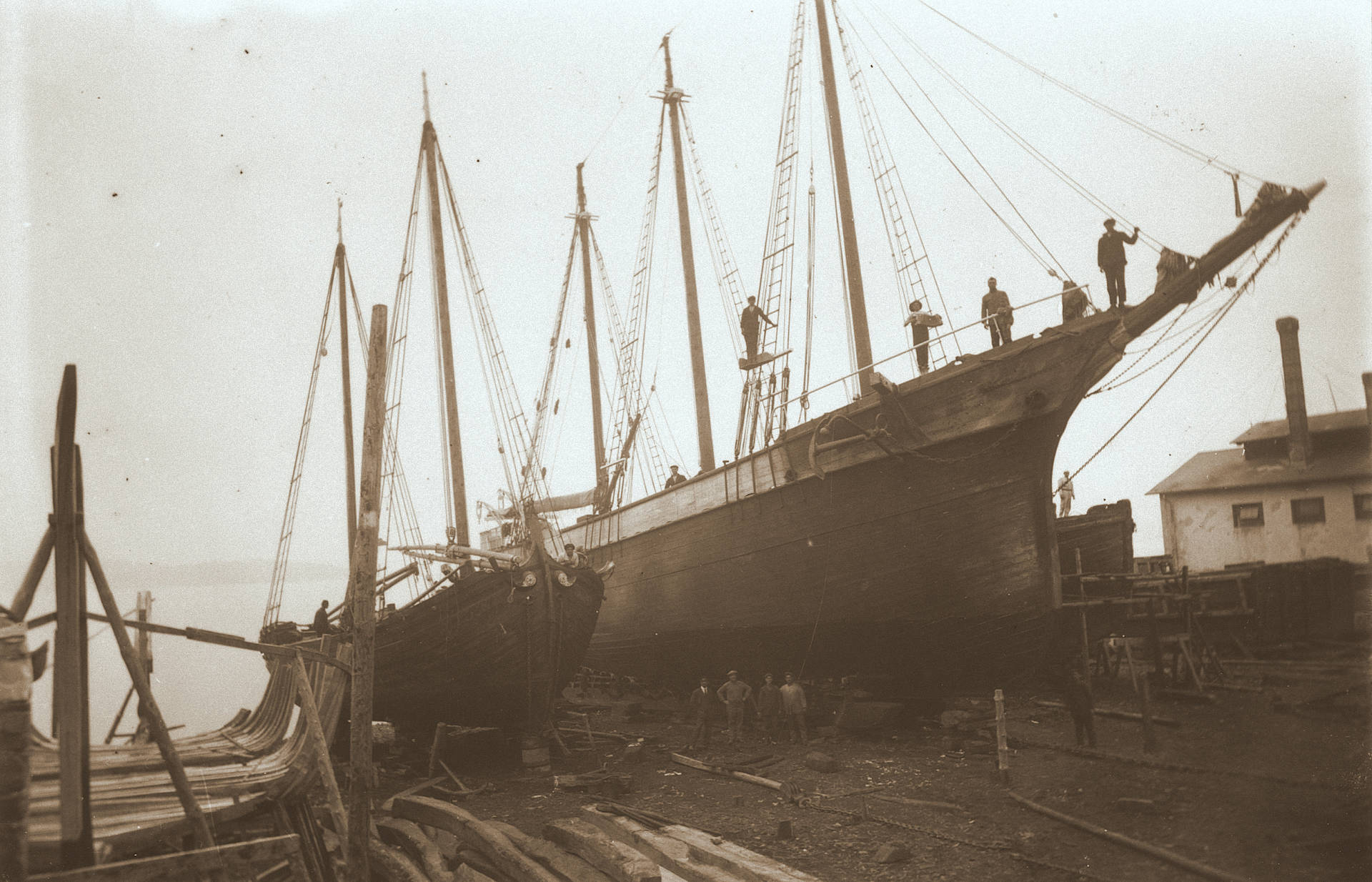 The San Giusto shipyard in Piran between the wars. Motor vessels and larger cargo ships were built here. In 1948 it passed under new ownership and was given the Serbo-Croatian name of Piransko brodogradilište (“Piran Shipyard”). In 1954 it was renamed again, this time with the equivalent Slovene name Ladjedelnica Piran, and continued to operate for a further ten years.
The San Giusto shipyard in Piran between the wars. Motor vessels and larger cargo ships were built here. In 1948 it passed under new ownership and was given the Serbo-Croatian name of Piransko brodogradilište (“Piran Shipyard”). In 1954 it was renamed again, this time with the equivalent Slovene name Ladjedelnica Piran, and continued to operate for a further ten years.
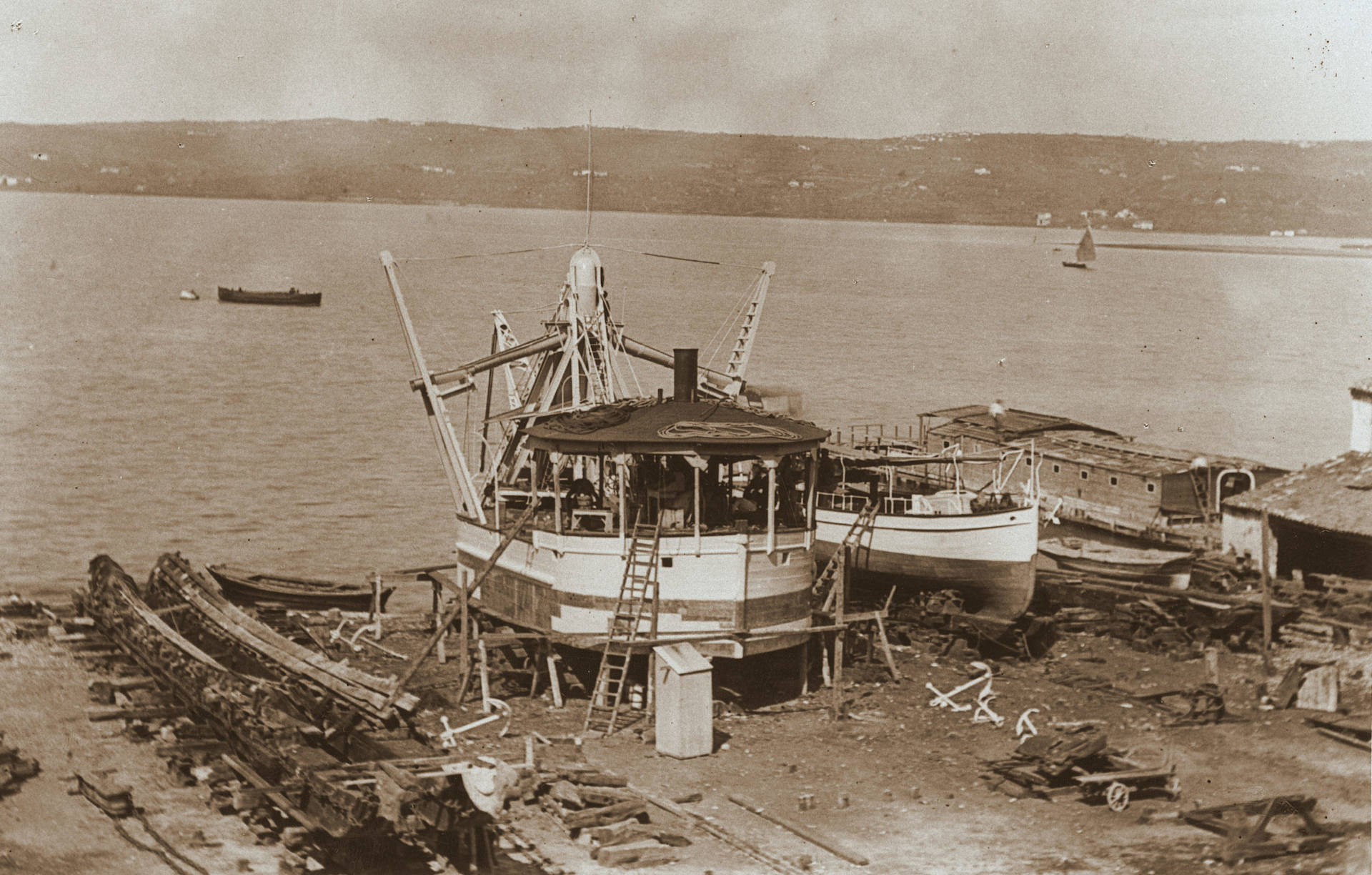 Two shipyards continued to operate in Koper after the war: one was owned by Nicolò Depangher, a native of Koper, while the other, called Istria, was owned by a joint-stock company from Bologna. Both had their registered offices in Trieste and soon closed down.
Two shipyards continued to operate in Koper after the war: one was owned by Nicolò Depangher, a native of Koper, while the other, called Istria, was owned by a joint-stock company from Bologna. Both had their registered offices in Trieste and soon closed down.
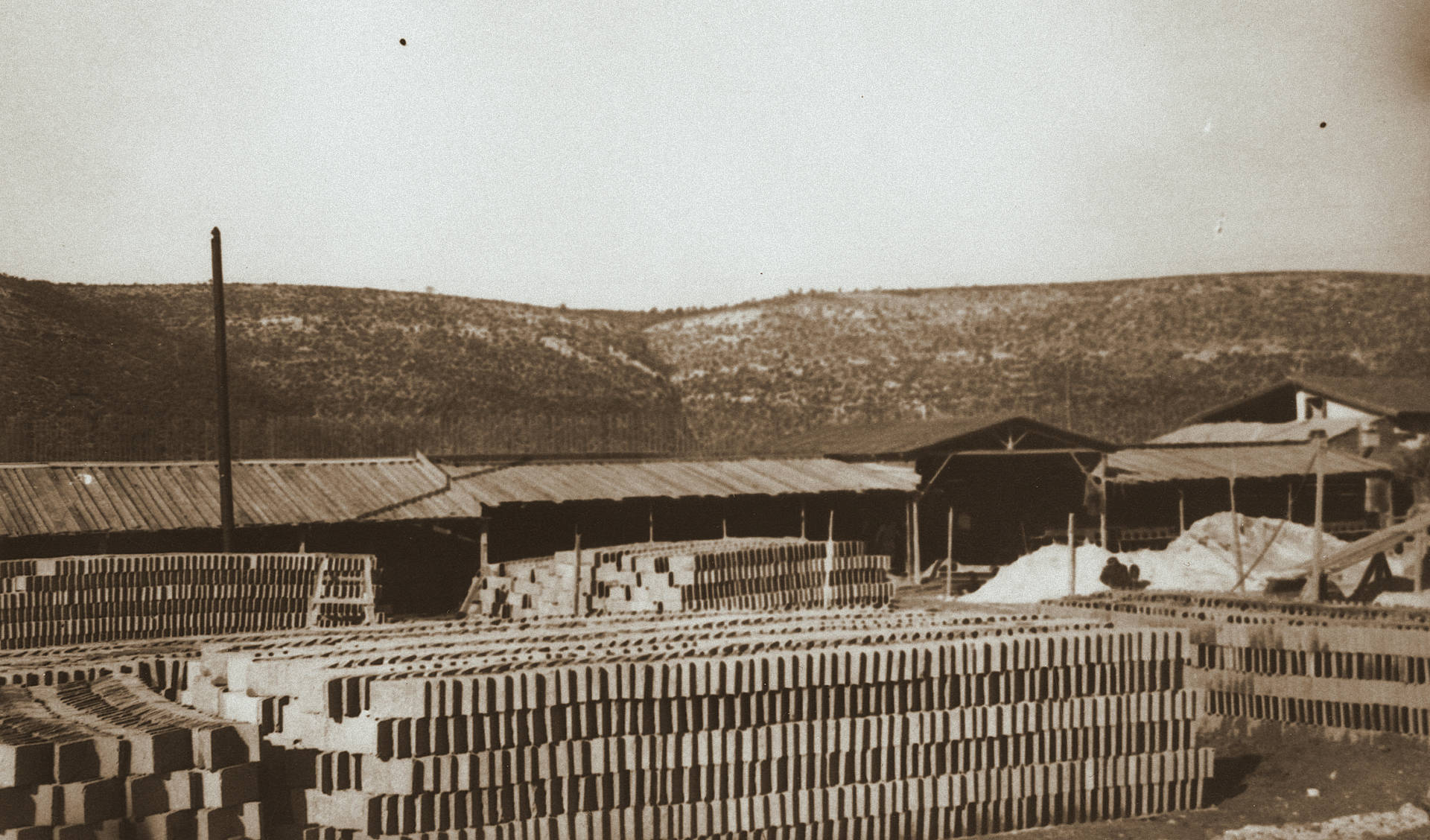 The Nardone brickworks in Izola bore the name of its owner, who had moved to the town from Friuli in 1900. In 1947 he departed for Trieste and a year later the factory was renamed Ruda.
The Nardone brickworks in Izola bore the name of its owner, who had moved to the town from Friuli in 1900. In 1947 he departed for Trieste and a year later the factory was renamed Ruda.
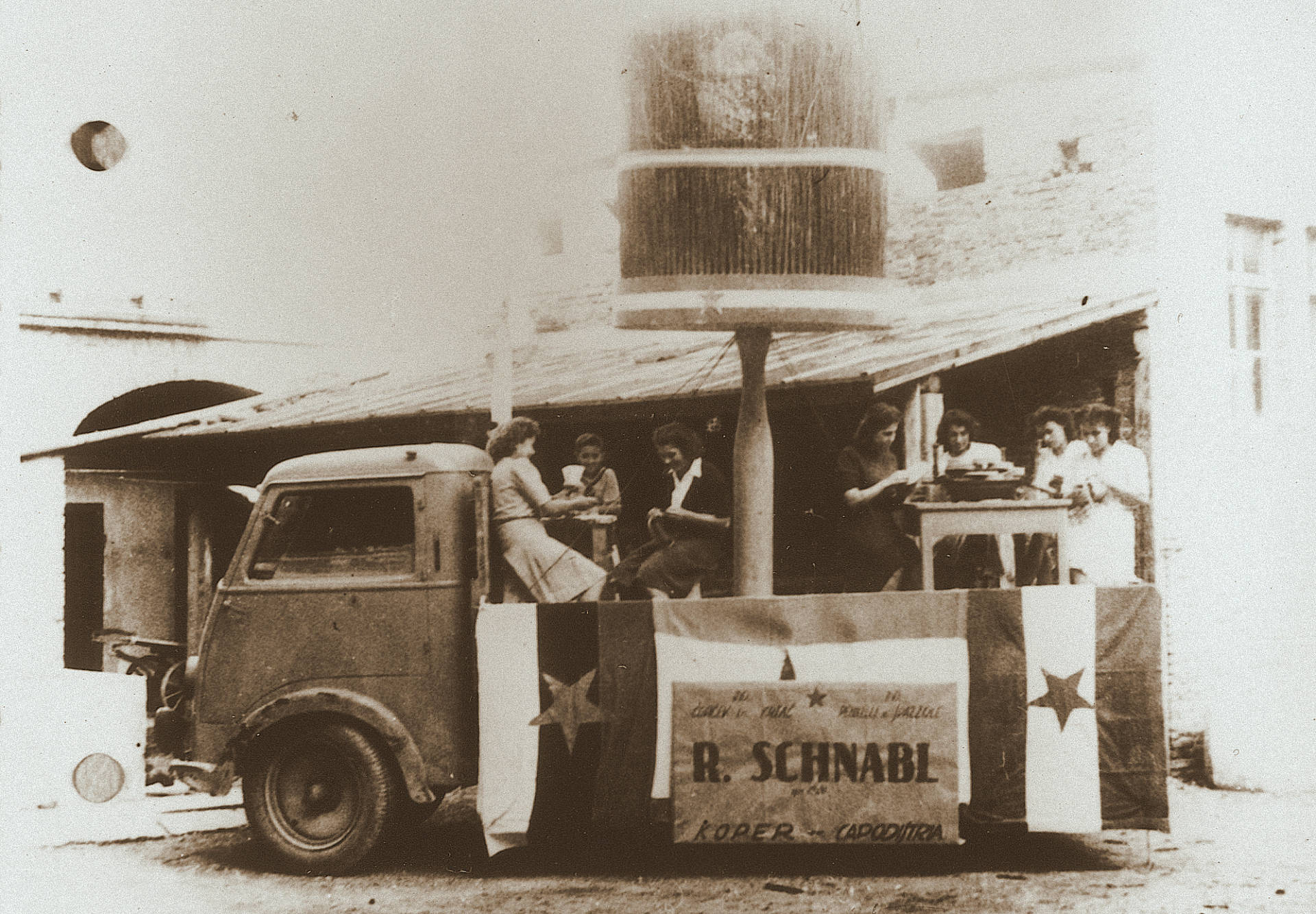 Brushmaking was a well-developed sector in Koper. Three plants continued to operate after the end of the war. For the most part they made brooms, brushes and paintbrushes. After 1947, following nationalisation, the Roberto Schnabl brushworks became part of the Stil factory. In 1951 the plant owned by Mario Marzari became the brush and broom factory Tovarna metel, ščetk in čopičev. A year later the new factory also absorbed the plant owned by the Jaksetich brothers. In later years it became the Iplas factory.
Brushmaking was a well-developed sector in Koper. Three plants continued to operate after the end of the war. For the most part they made brooms, brushes and paintbrushes. After 1947, following nationalisation, the Roberto Schnabl brushworks became part of the Stil factory. In 1951 the plant owned by Mario Marzari became the brush and broom factory Tovarna metel, ščetk in čopičev. A year later the new factory also absorbed the plant owned by the Jaksetich brothers. In later years it became the Iplas factory.
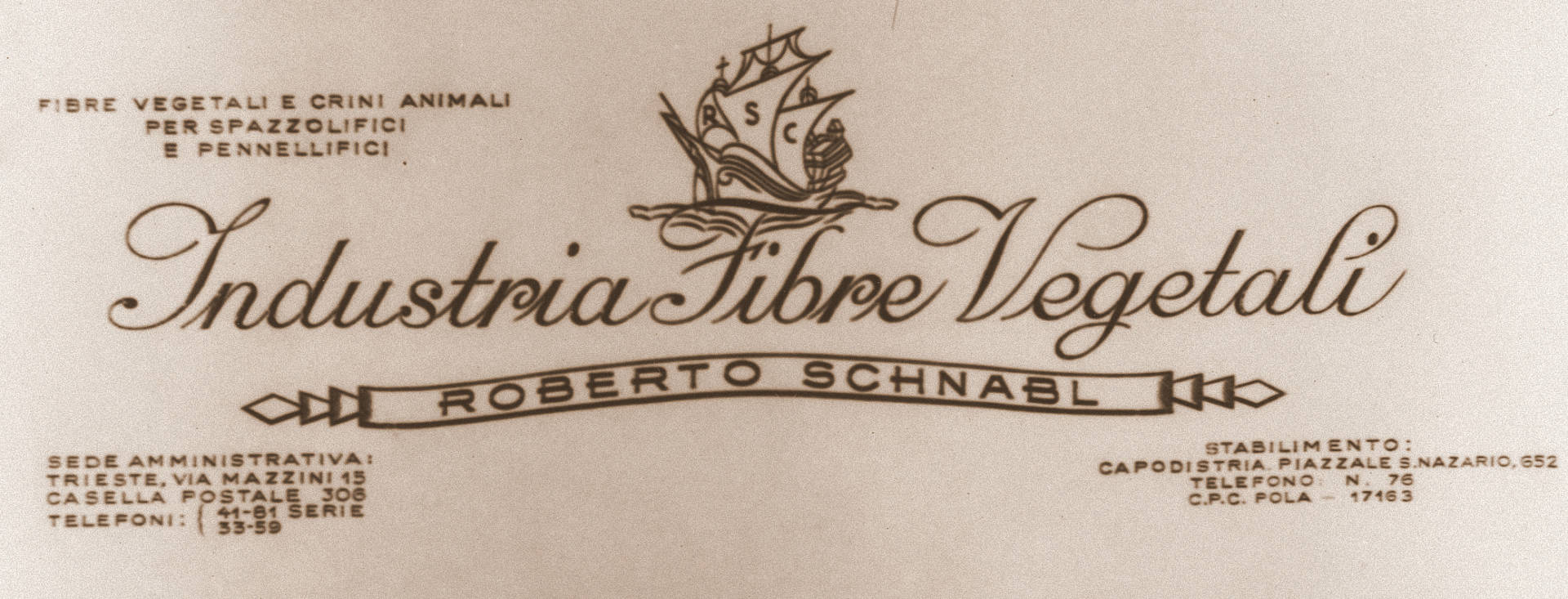
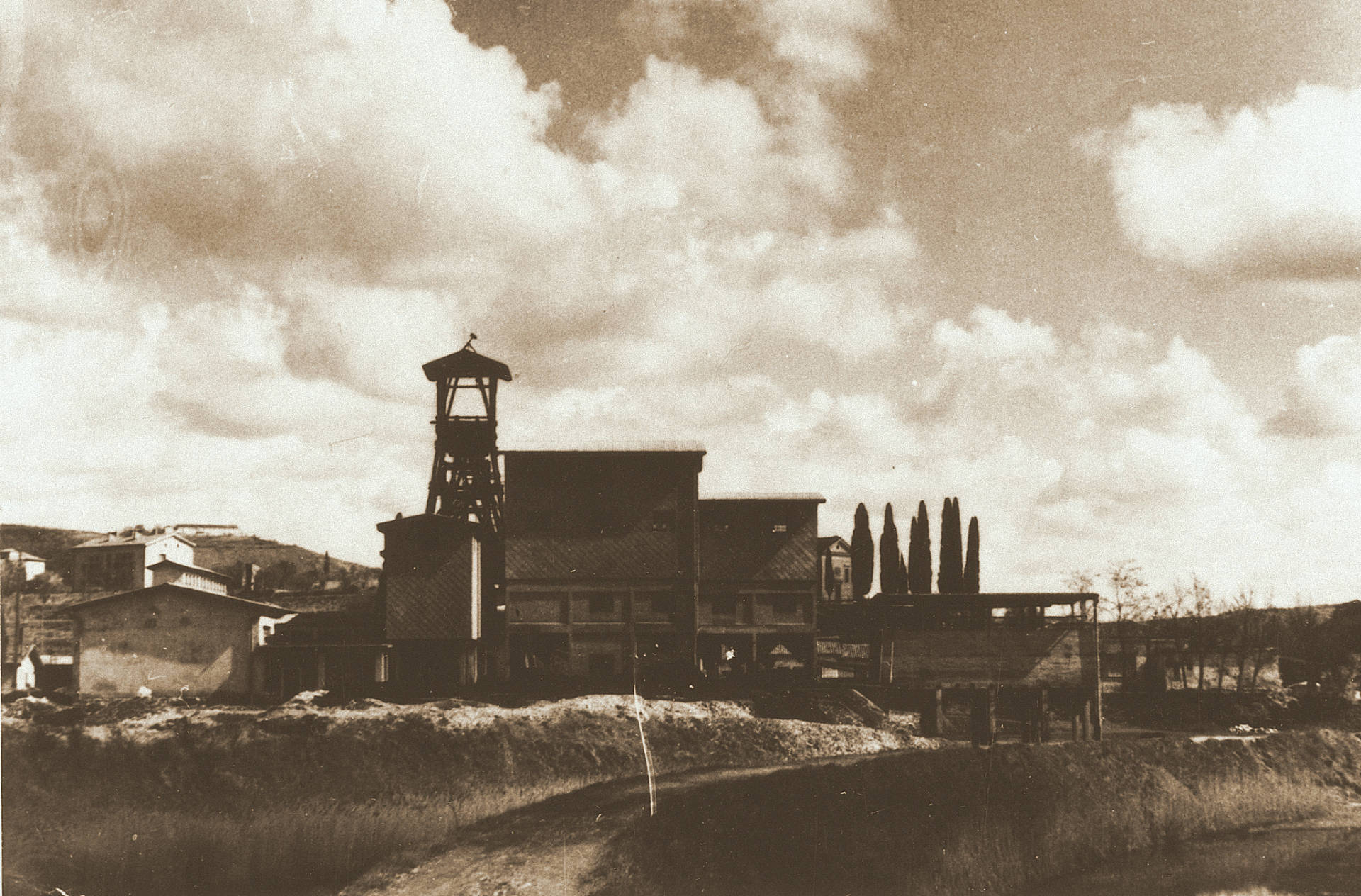 The coal mine in Sečovlje was founded in 1936 by the mining company Società Anonima Carbonifera Arsa, which had its head office in Rome. After the war the mine only operated occasionally because of frequent flooding. It ceased operation in 1970.
The coal mine in Sečovlje was founded in 1936 by the mining company Società Anonima Carbonifera Arsa, which had its head office in Rome. After the war the mine only operated occasionally because of frequent flooding. It ceased operation in 1970.
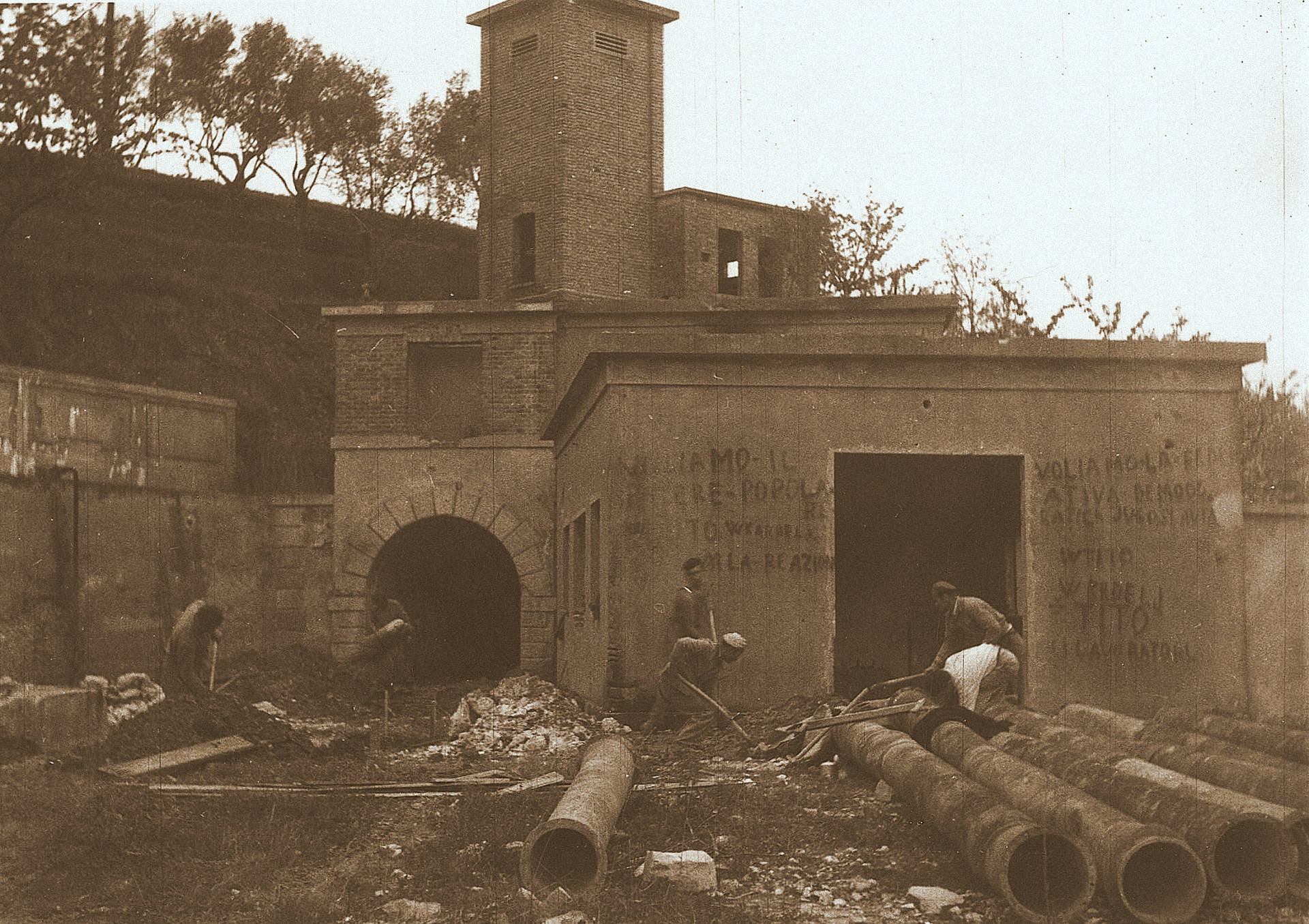 The coal mine in Sečovlje was founded in 1936 by the mining company Società Anonima Carbonifera Arsa, which had its head office in Rome. After the war the mine only operated occasionally because of frequent flooding. It ceased operation in 1970.
The coal mine in Sečovlje was founded in 1936 by the mining company Società Anonima Carbonifera Arsa, which had its head office in Rome. After the war the mine only operated occasionally because of frequent flooding. It ceased operation in 1970.
After 1947
In 1947 new enterprises began to be established in new sectors. These included, in Koper: Avtopodjetje Adrija (passenger transport), Intereuropa (goods transport) and Stil (furniture); in Piran: Agmarit (maritime transport); in Portorož: Začimba; in Izola: Mehanotehnika (toys) and in Dekani: Lama (locks and metal fittings).
In 1951 self-management was introduced in the Istrian district after the Yugoslav model. On 3 February of that year an ordinance was passed stating that enterprises would henceforth by managed by workers’ collectives via workers’ councils. The first workers’ council elections were held in March, after which the newly elected councils took over the management of enterprises. Workers in private companies had the right to participate in decision-making along with the owner. Later on, private companies were placed on the same level as those under the ownership of district committees.
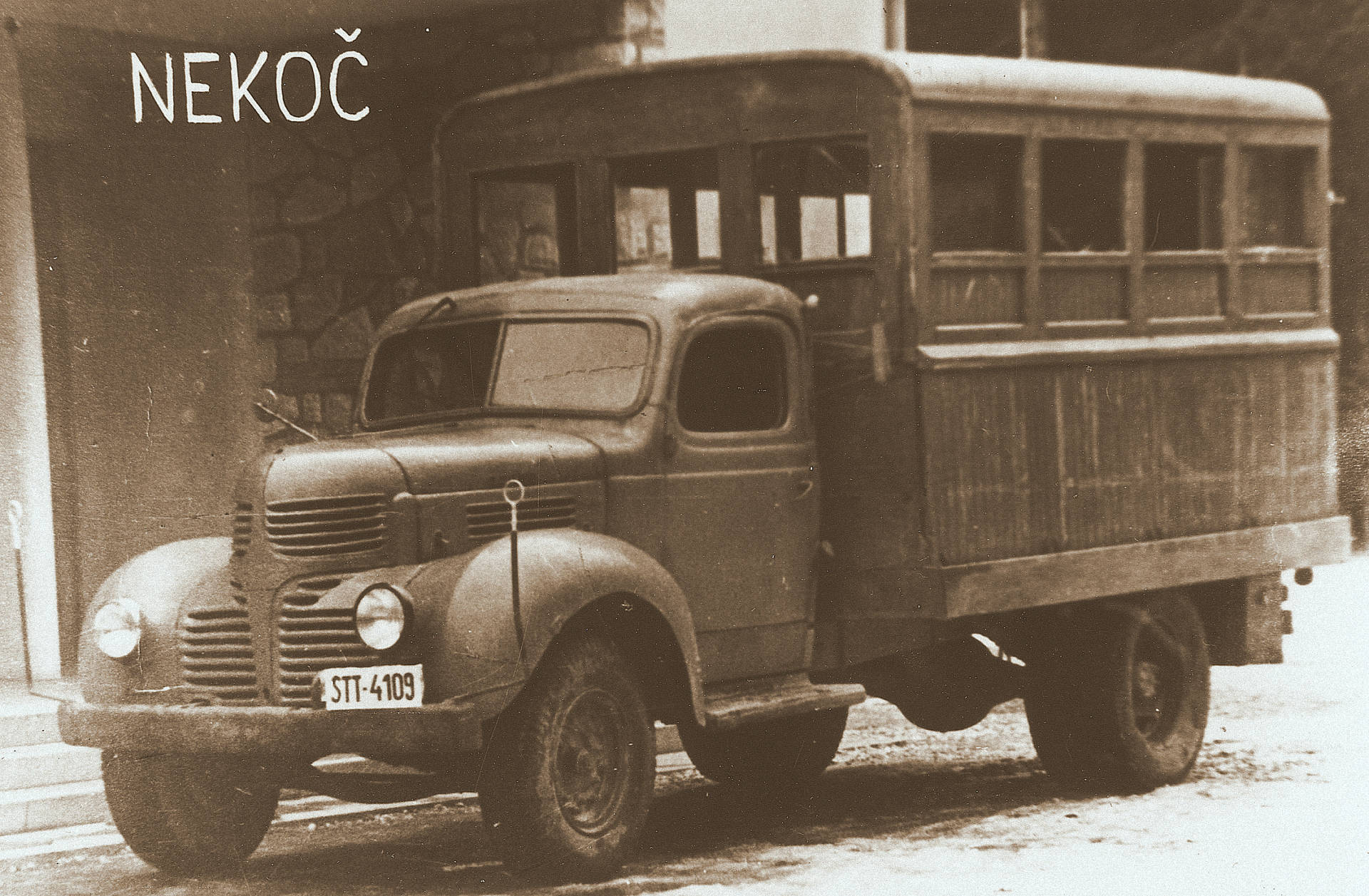 Avtopodjetje Adrija was officially founded on 5 February 1947 as the successor to Avtopodjetje Koper (founded in the autumn of 1946). Its initial fleet consisted of ten lorries. In 1948 the company acquired its first bus. Six years later it was renamed Slavnik Koper.
Avtopodjetje Adrija was officially founded on 5 February 1947 as the successor to Avtopodjetje Koper (founded in the autumn of 1946). Its initial fleet consisted of ten lorries. In 1948 the company acquired its first bus. Six years later it was renamed Slavnik Koper.
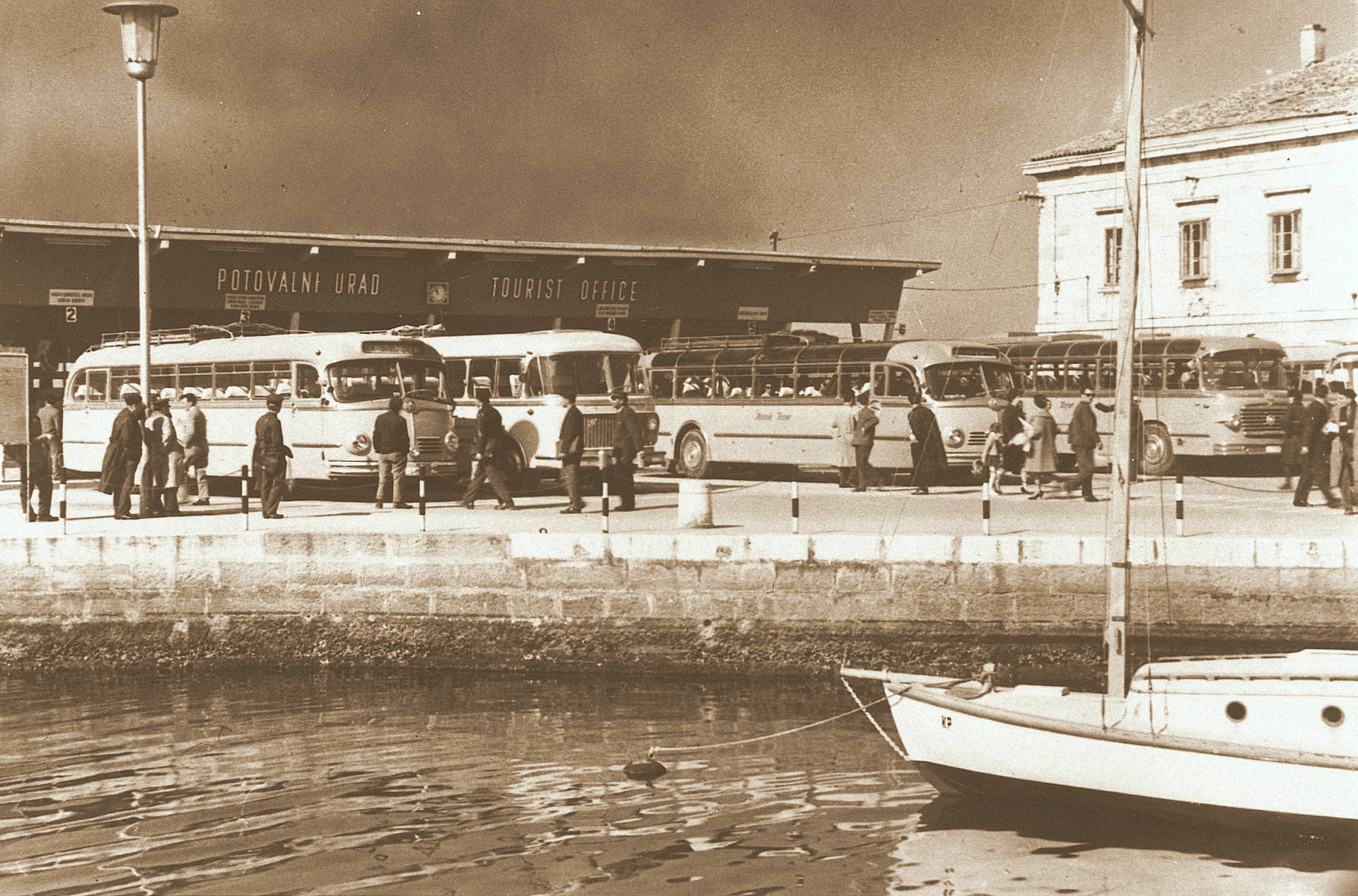 The new Koper bus station began operating in 1950.
The new Koper bus station began operating in 1950.
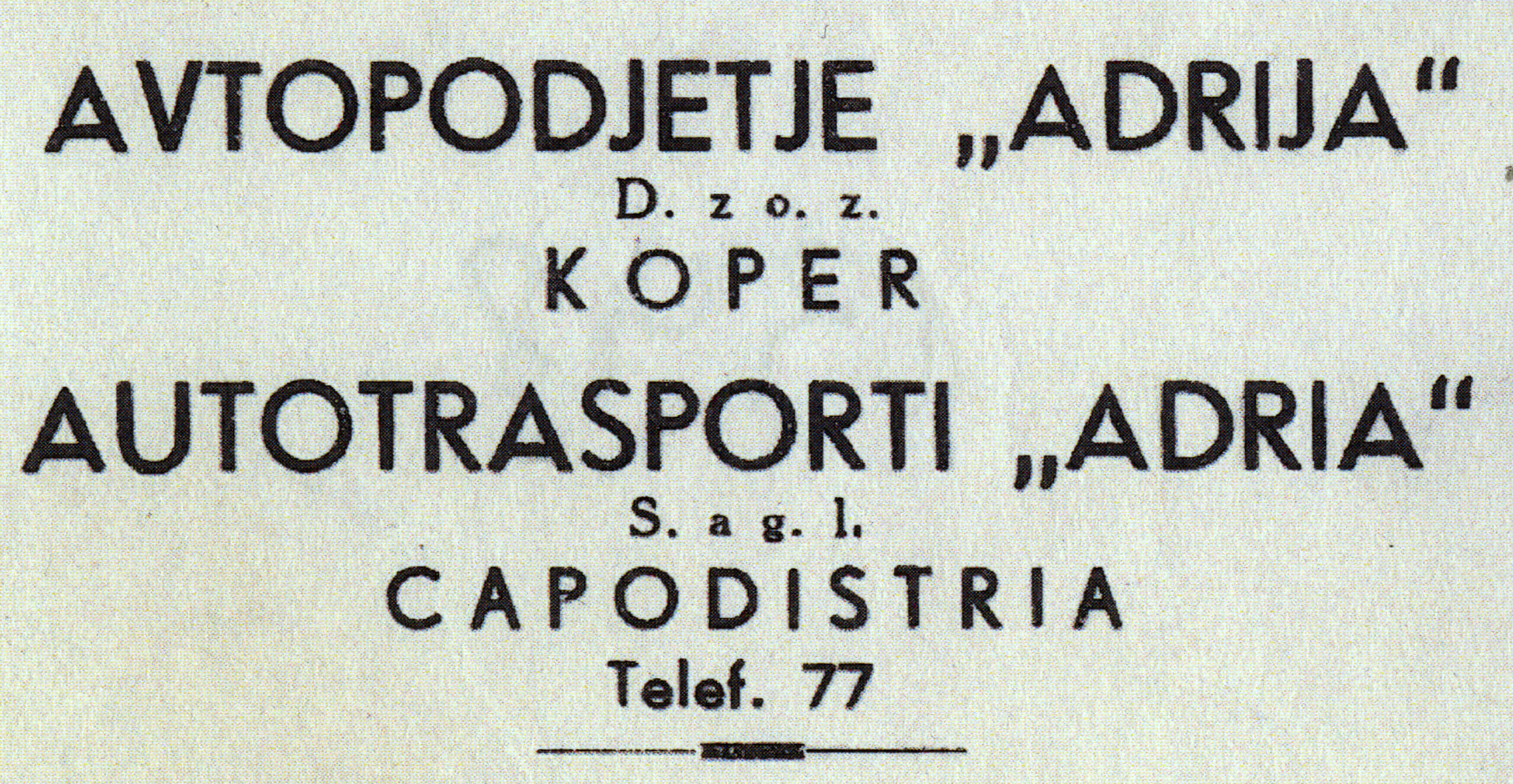


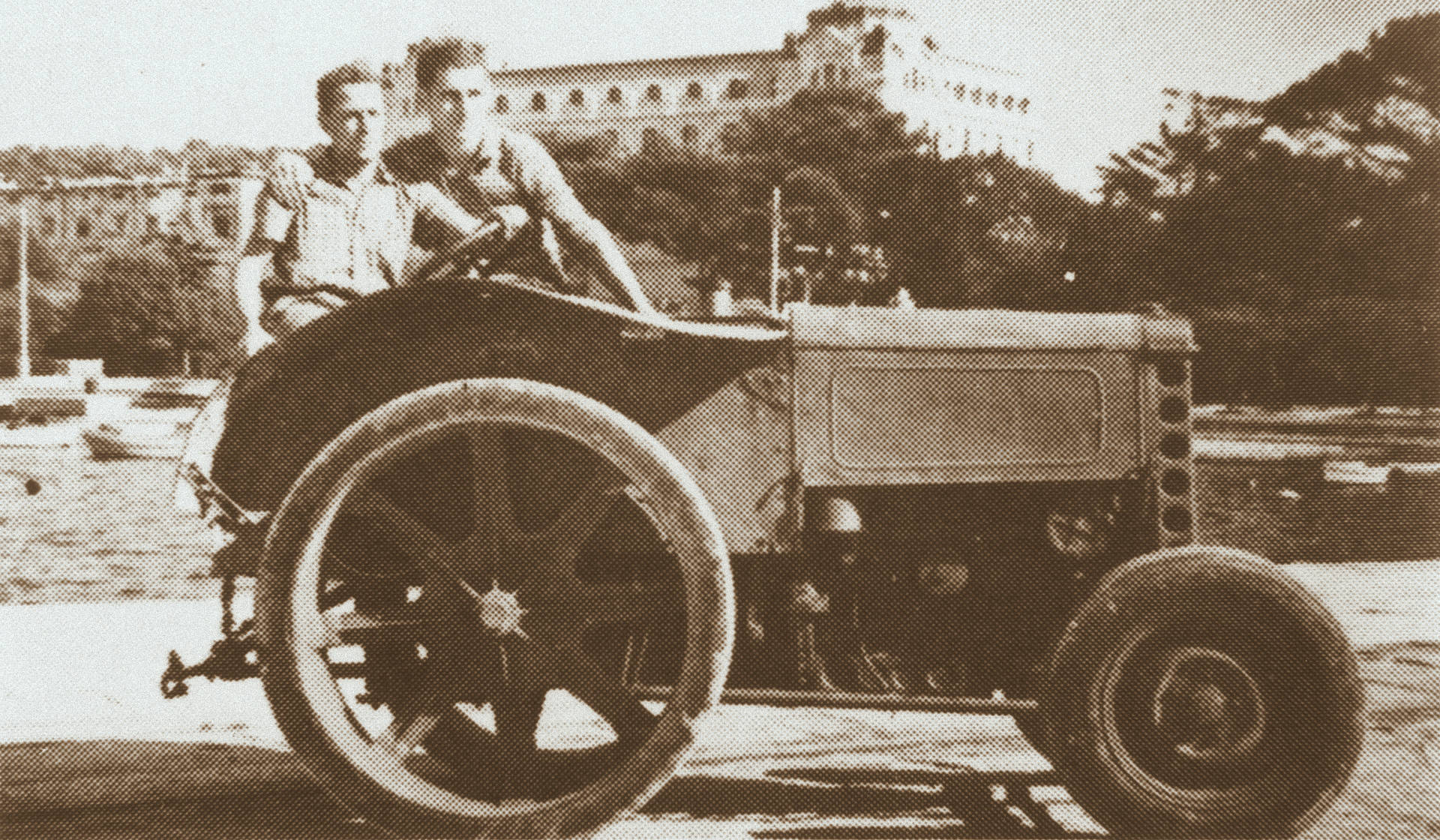 This Fiat tractor was the first vehicle owned by Intereuropa, officially established on 10 February 1947.
This Fiat tractor was the first vehicle owned by Intereuropa, officially established on 10 February 1947.
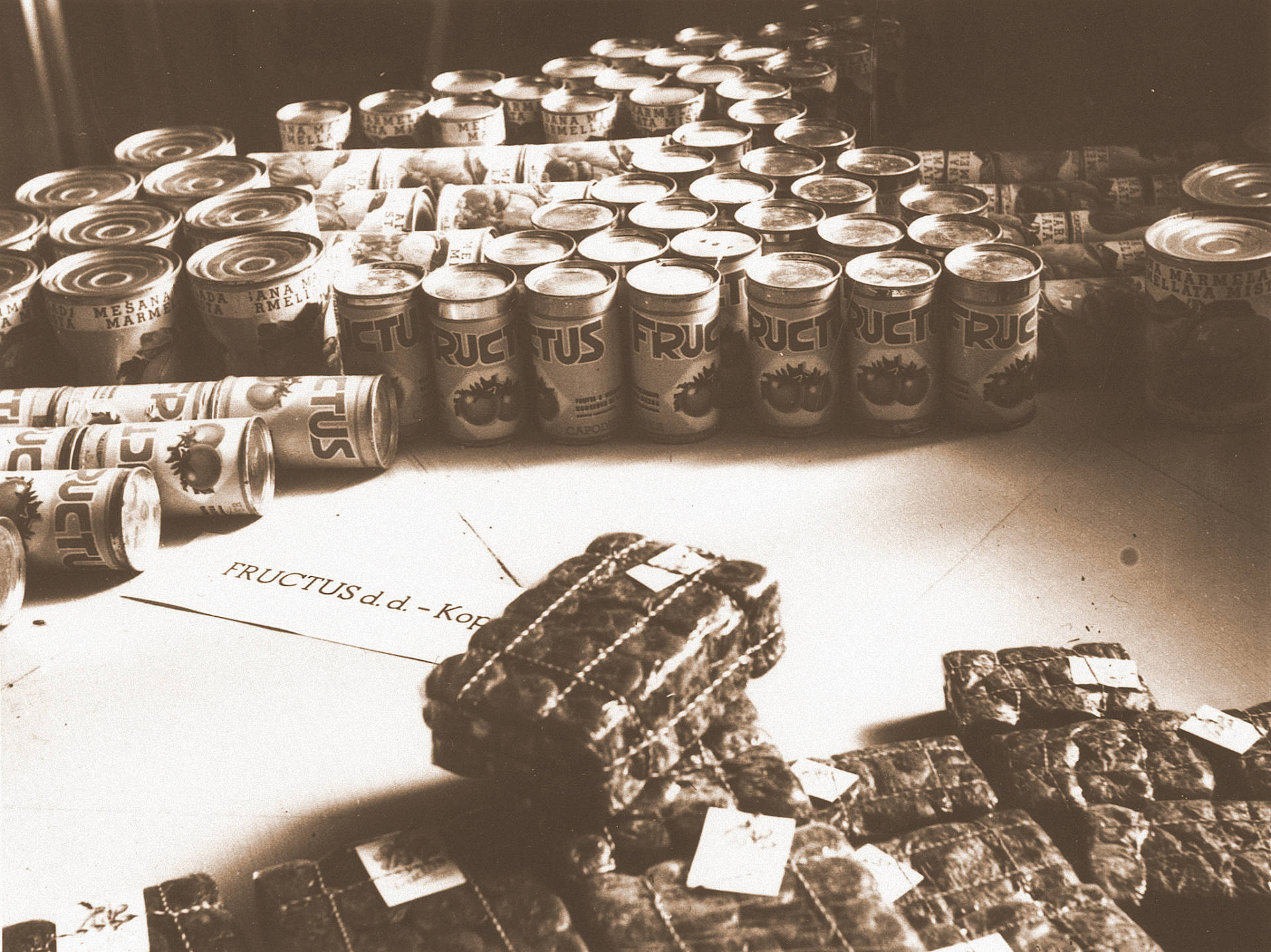 Products of the Fructus factory in Koper. The company was founded in 1908 as Conti Caldo S.A. to produce tomato sauce and meat products. It was later acquired by a farmers’ cooperative (consorzio agrario) and then after the war passed under the management of the district economic cooperative and was given its new name.
Products of the Fructus factory in Koper. The company was founded in 1908 as Conti Caldo S.A. to produce tomato sauce and meat products. It was later acquired by a farmers’ cooperative (consorzio agrario) and then after the war passed under the management of the district economic cooperative and was given its new name.
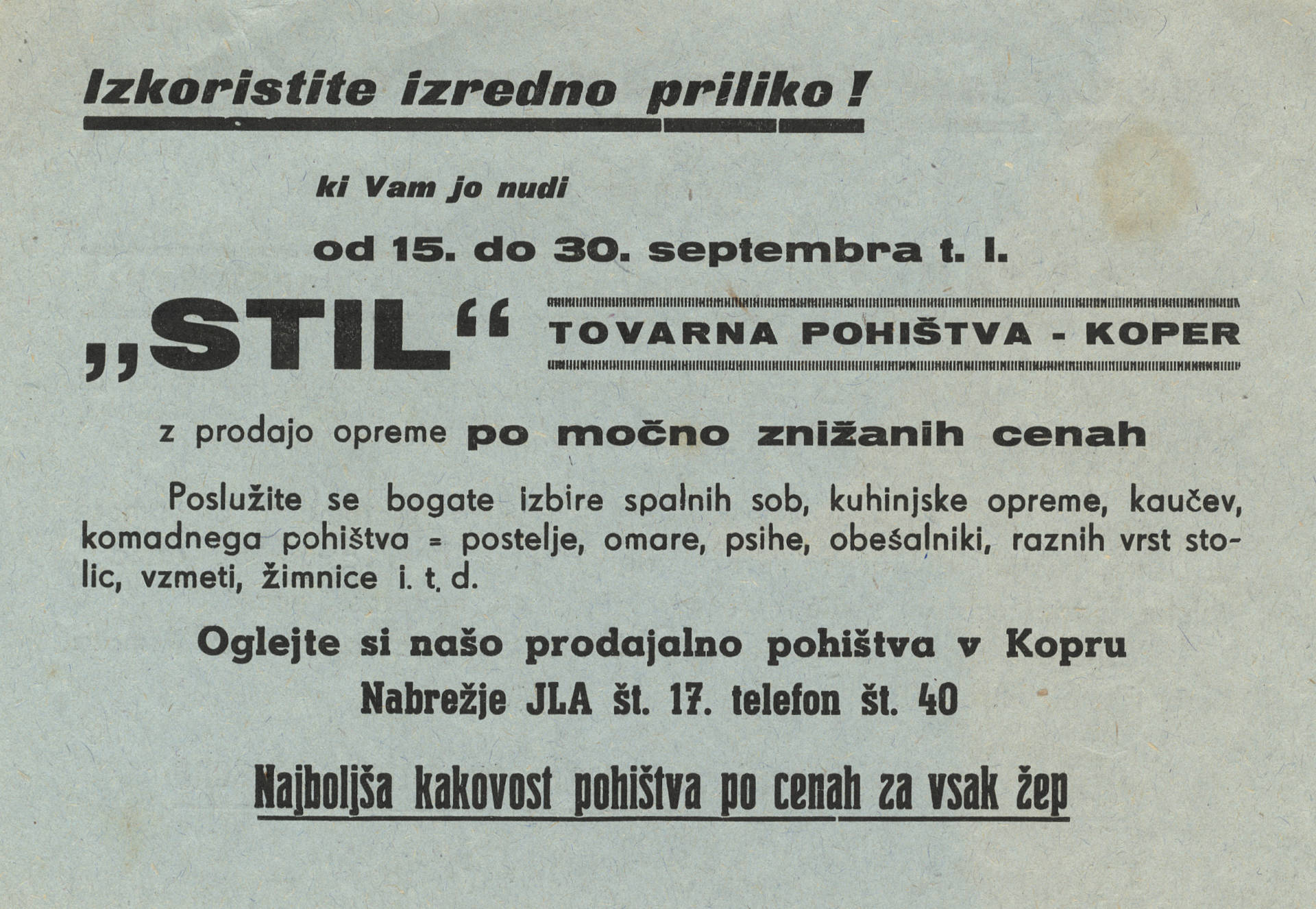
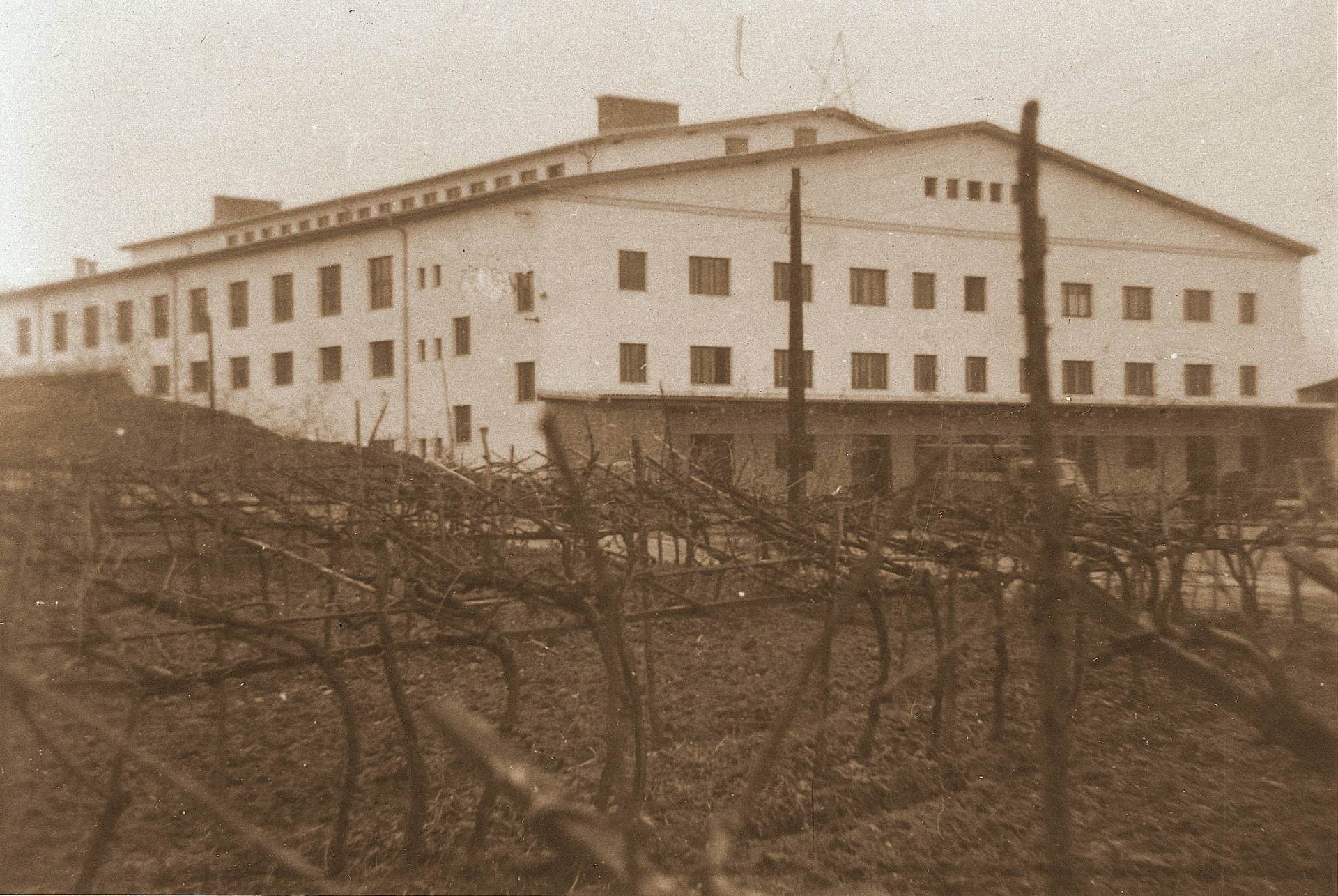 The new winery of the Vino winemaking enterprise.
The new winery of the Vino winemaking enterprise.
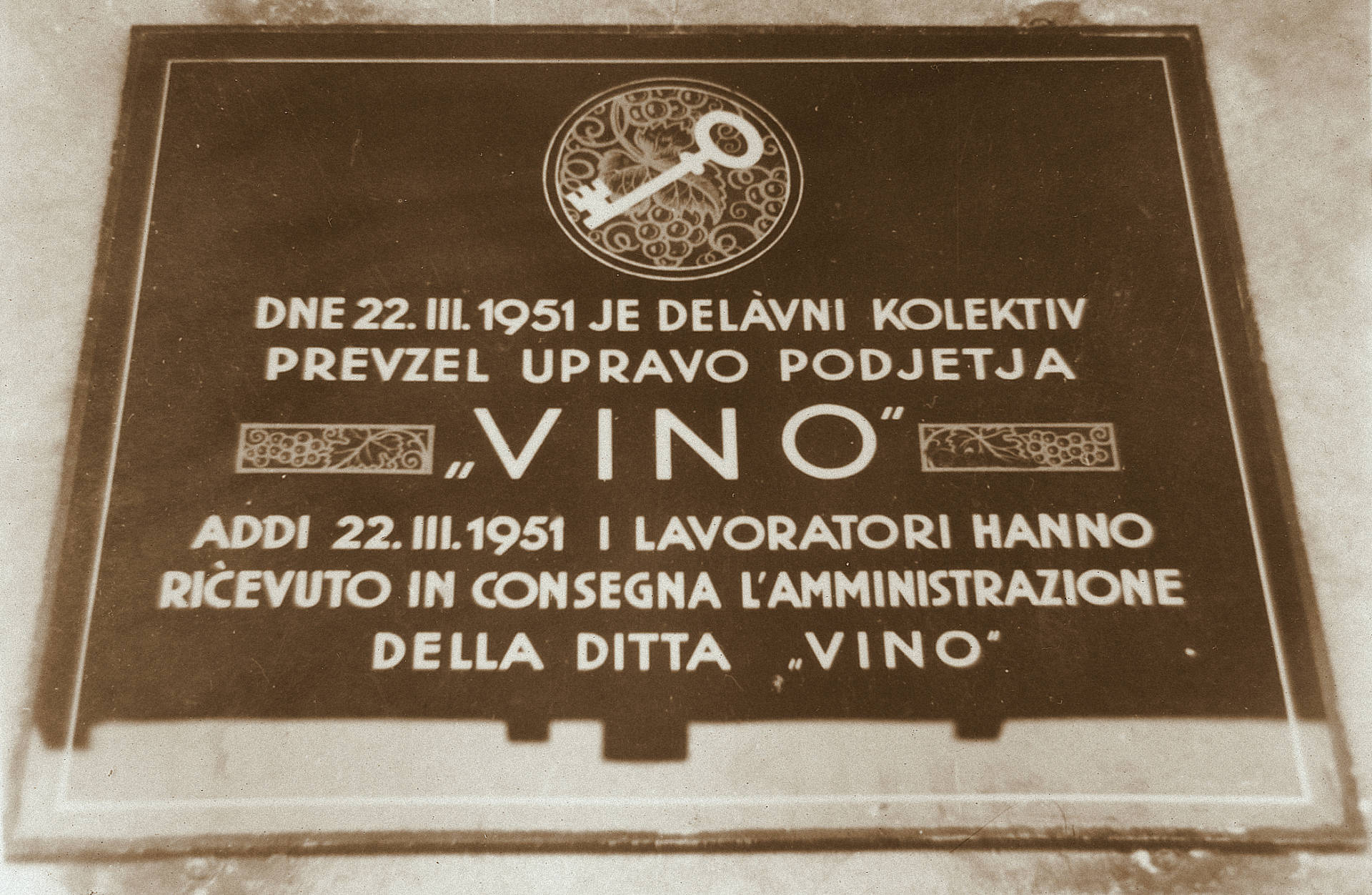 Plaques commemorating the takeover of the company were affixed to the front of the building.
Plaques commemorating the takeover of the company were affixed to the front of the building.
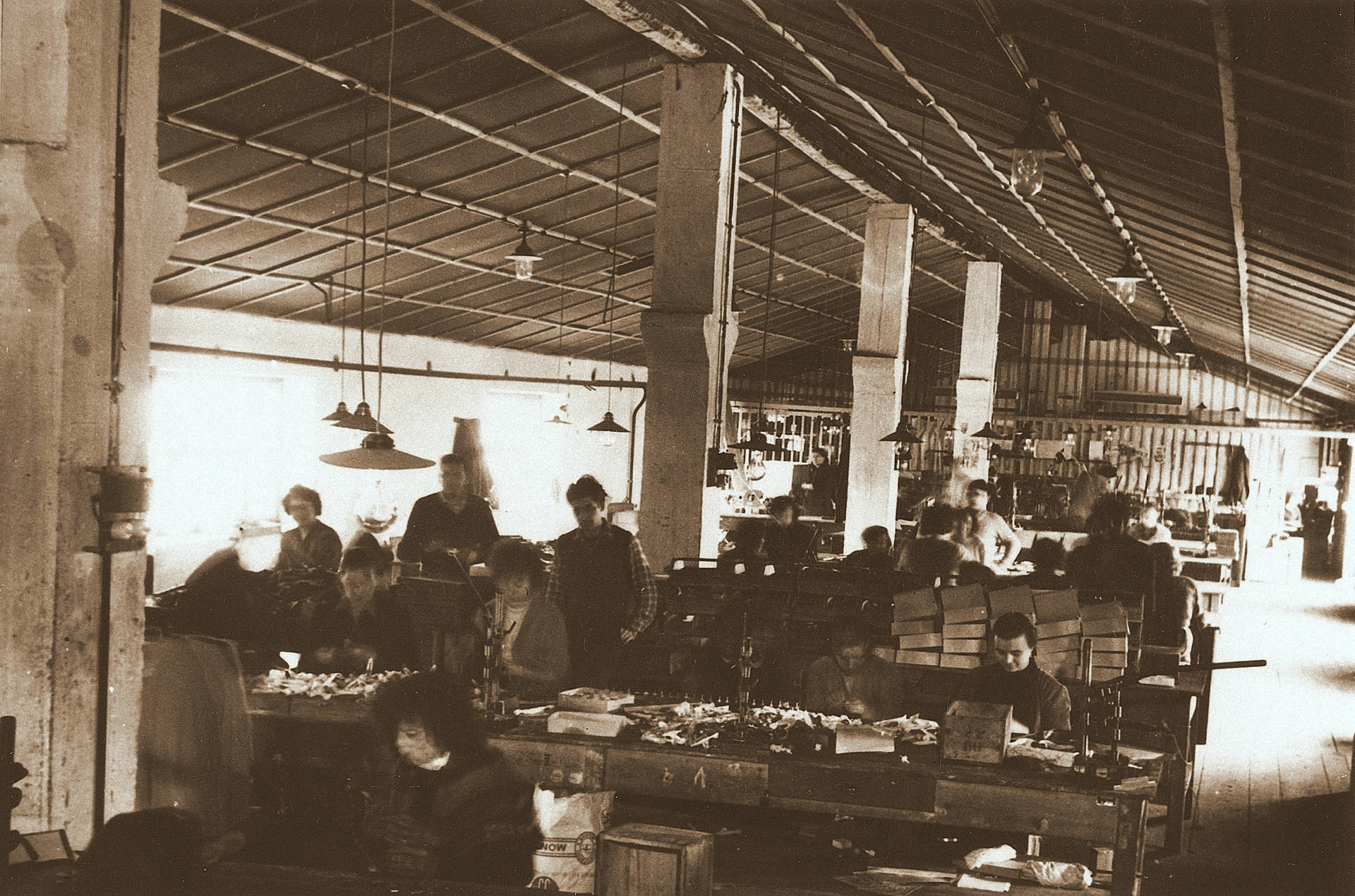 The Mehanotehnika toy factory was established in Izola on 1 November 1952.
The Mehanotehnika toy factory was established in Izola on 1 November 1952.
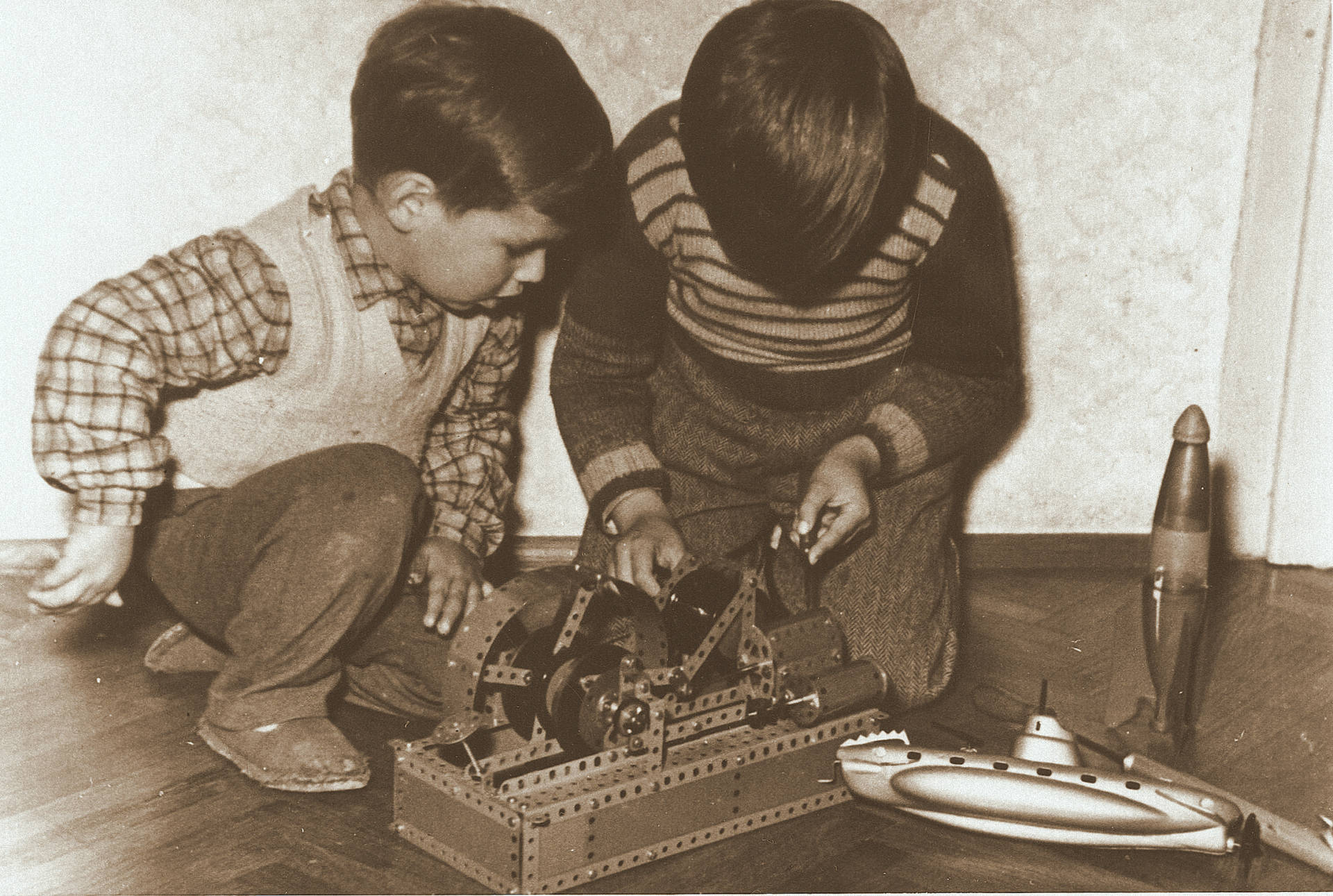 The first toy – a construction set called Mehano, from which the factory took its name.
The first toy – a construction set called Mehano, from which the factory took its name.
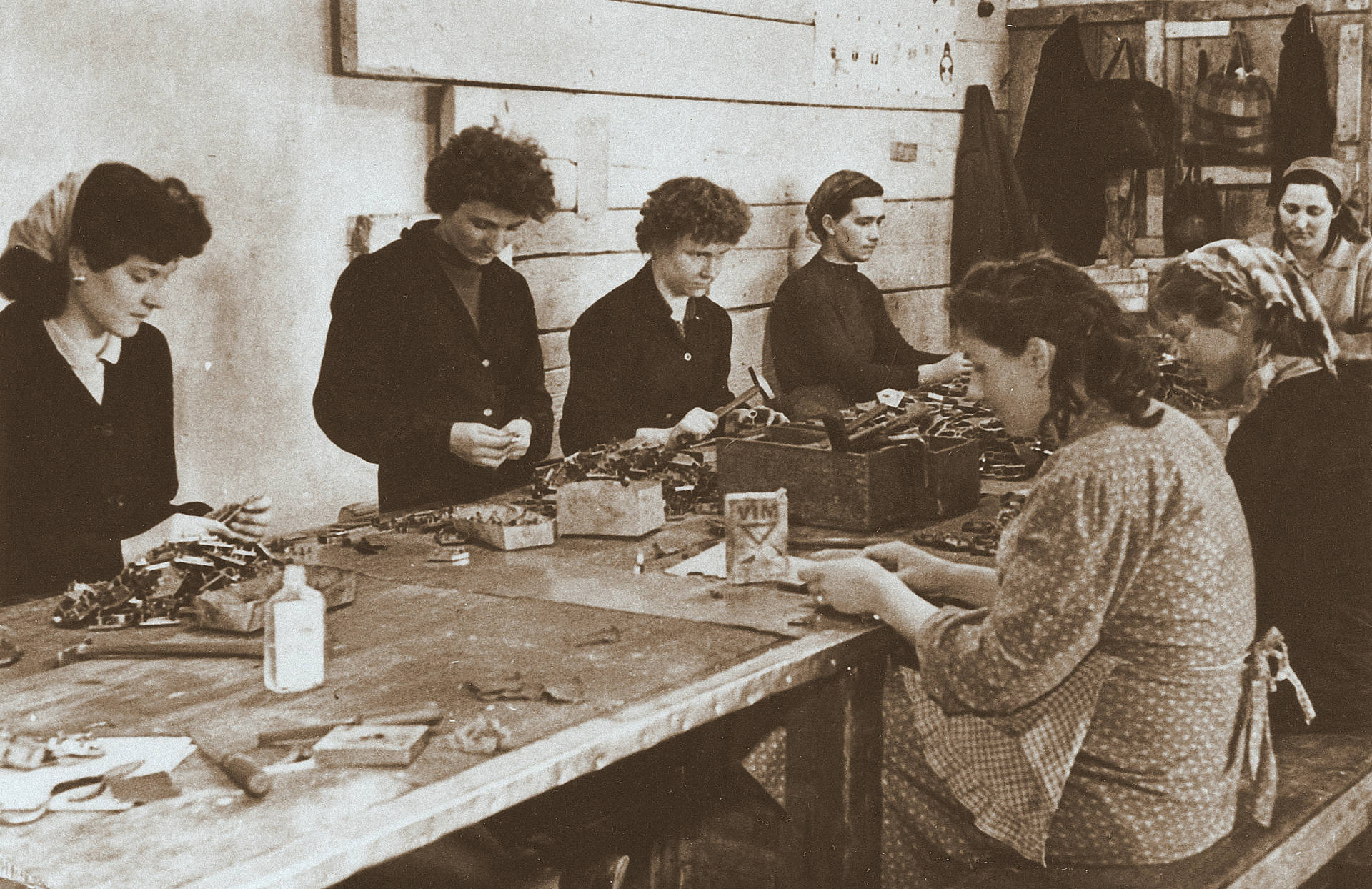 The Lama lock and metal fittings factory in Dekani was founded on 28 December 1953. It had previously operated out of premises in the building of the local cooperative.
The Lama lock and metal fittings factory in Dekani was founded on 28 December 1953. It had previously operated out of premises in the building of the local cooperative.
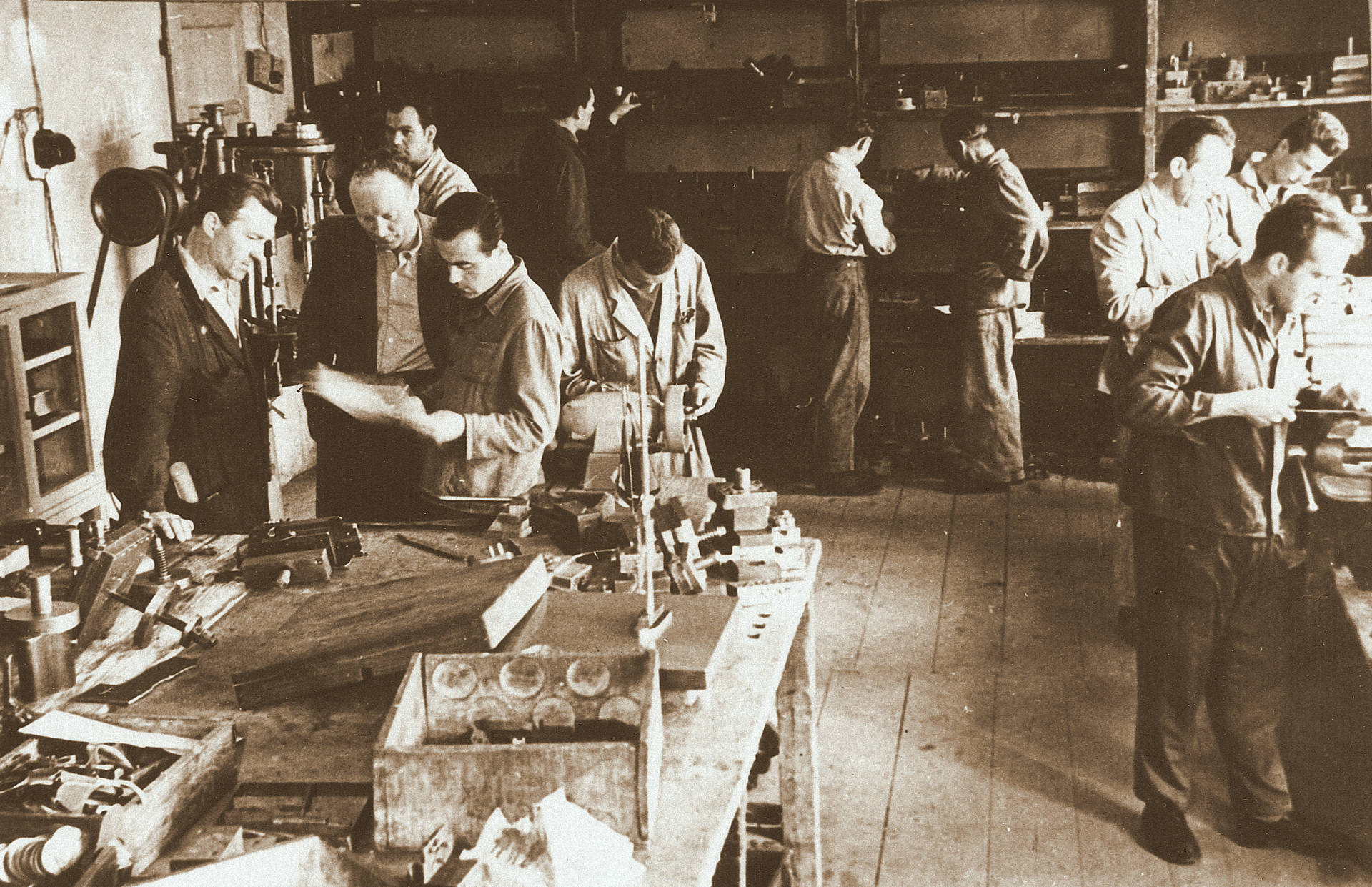 The Lama lock and metal fittings factory in Dekani was founded on 28 December 1953. It had previously operated out of premises in the building of the local cooperative.
The Lama lock and metal fittings factory in Dekani was founded on 28 December 1953. It had previously operated out of premises in the building of the local cooperative.